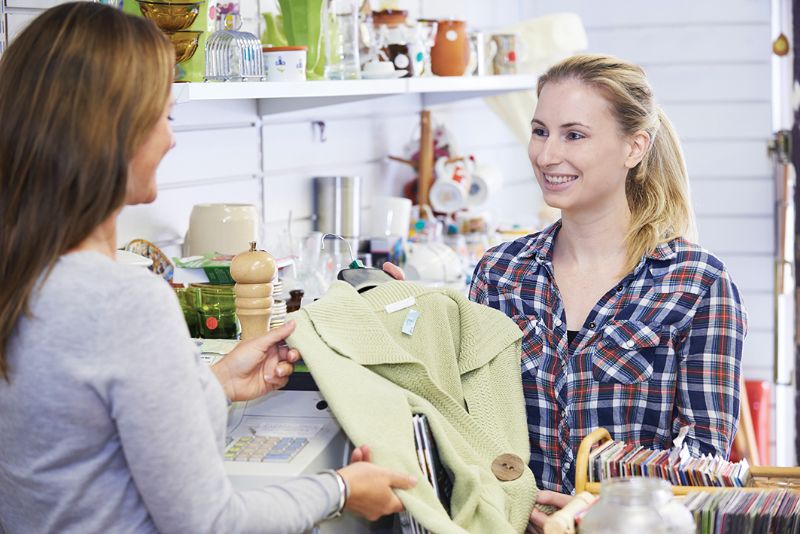- Home
- News, Articles & Reviews
We are hiring! Please click here to join our growing magazine delivery team in Gloucestershire!
Areas
Environment
Archive

Conscious consumerism
All Areas > Environment > Save the Planet
Author: Lily Curle, Posted: Tuesday, 22nd May 2018, 12:50
Britain has developed a consumerist culture over many decades, where more is most definitely more. More possessions equals more power, and objects have become a kind of status symbol. Whilst it is very easy to fall into the habit of buying whatever is in fashion, or whatever is on offer, it is not the best for the environment. A higher demand for items leads to more being produced, requiring more (usually new) materials to be processed.
What’s the problem?
Many possessions are bought for the sake of buying them. A new pair of pyjamas because they have a pattern on that’s currently fashionable, a new book when there’s already two copies of the same volume at home, another new mug even though the cupboard is full to bursting. These objects, whilst cluttering up the house, have to come from somewhere.
If the pyjamas are made of polyester, then they need coal and gasoline to be made. The book requires a tree to be cut down, energy to process the pulp, and chemicals to make the ink. The ceramic mug is made from clay, which must be taken from the earth. All these little things add up, and before long the house is full of processed materials that are not being used.
How can I avoid it?
Practising conscious consumerism not only leads to less money spent, and a lot less clutter around the house, but also less materials needing to be used. Before you buy the pyjamas, consider whether you really need a new pair; if you don’t love them, and you don’t need them, then they’re not worth buying. If you want to replace what you’ve got already, recycle or donate the old clothes to ensure that they are not just going to landfill when they could be used elsewhere. If you need something, look for recycled items, as this also does not require raw materials. Water bottles, notepads and carrier bags can all be bought recycled.
The object is not to not buy anything, but to buy sensibly, and not to just buy for the sake of it. This is the “reduce” part of the frequently repeated “reduce, reuse, recycle” mantra, and it comes first for good reason. Reducing what you buy in the first place ensures that there isn’t as much that needs to be recycled or worse, put in landfill. Aside from saving money, this makes sure that you are not using up unnecessary amounts of raw resources, which are being depleted everyday.Other Images
Copyright © 2024 The Local Answer Limited.
Unauthorized use and/or duplication of this material without express and written permission from this site's author and/or owner is strictly prohibited. Excerpts and links may be used, provided that full and clear credit is given to The Local Answer Limited and thelocalanswer.co.uk with appropriate and specific direction to the original content.More articles you may be interested in...


© 2024 The Local Answer Limited - Registered in England and Wales - Company No. 06929408
Unit H, Churchill Industrial Estate, Churchill Road, Leckhampton, Cheltenham, GL53 7EG - VAT Registration No. 975613000You are leaving the TLA website...
You are now leaving the TLA website and are going to a website that is not operated by us. The Local Answer are not responsible for the content or availability of linked sites, and cannot accept liability if the linked site has been compromised and contains unsuitable images or other content. If you wish to proceed, please click the "Continue" button below:




